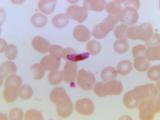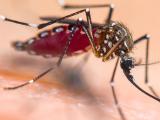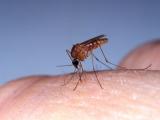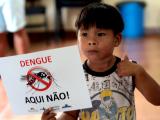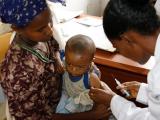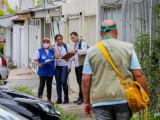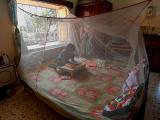Jul 16, 2010
DHS awards $1.8 billion in preparedness grants
US Department of Homeland Security (DHS) Secretary Janet Napolitano yesterday announced more than $1.8 billion in preparedness grants for fiscal year 2010, slightly more than in 2009. The grants are designed to help states, cities, tribal governments, and nonprofits improve their ability to address the risk of terrorist attacks and other hazards. Napolitano said in a release, "This funding pays for training for fire fighters, medics and police officers; supports the purchase of equipment that is essential to our first responders; and improves our ability to communicate during disasters." The grants include:
- State Homeland Security Program: $842 million to support state homeland security efforts
- Urban Areas Security Initiative: $832.5 million to enhance preparedness in 64 high-threat, high-density areas (plus $19 million in Nonprofit Security Grant Program funds for nonprofits in these areas)
- Operation Stonegarden: $60 million to aid cooperation among federal, state, territorial, tribal, and local law enforcement agencies
- Metropolitan Medical Response System Program: $39.3 million to improve regional mass-casualty preparedness and response across the nation
- Citizen Corps Program: $12.4 million to engage citizens in community preparedness, response, and recovery
- Tribal Homeland Security Grant Program: $10 million to select eligible tribal applicants for preparedness initiatives, up from $1.9 million last year
- Regional Catastrophic Preparedness Grant Program: more than $33.6 million to enhance catastrophic incident preparedness in selected high-risk urban areas
Jul 15 DHS release
Five-year study to examine genetic factors in dengue susceptibility
A Canadian research team is launching a 5-year, $10 million study to look for genetic influences on susceptibility to dengue fever, according to a news release from McMaster University in Hamilton, Ont. The study, financed by the US National Institutes of Health, will be led by Dr. Mark Loeb, professor of pathology and molecular medicine at McMaster. He and his team plan to obtain and analyze 9,000 blood samples from Honduras, Nicaragua, Mexico, Columbia, Thailand, India, and Vietnam, the release says. They will look for any genetic differences between people who had dengue fever, those who had dengue hemorrhagic fever (the more severe form of the disease), and those who had asymptomatic dengue infections. "We will get a blood sample from people who have been infected with dengue and compare them to milder cases, looking for genetic variants—such as vitamin D receptors—which have previously been described as important
factors," Loeb said in the release. The statement said dengue is endemic in more than 100 countries and causes an estimated 20,000 to 25,000 deaths per year.
Jul 15 McMaster University release
Scientists report developing 'malaria-proof' mosquito
University of Arizona researchers say they have succeeded in genetically modifying mosquitoes so as to make them immune to Plasmodium, the malaria parasite, raising the possibility of someday replacing wild mosquitoes with lab-bred populations that could not transmit it to humans. In a report in PLoS Pathogens and a University of Arizona press release, the scientists say they altered the genome of the Anopheles stephensi mosquito in a way that leads to the constant activity of a signaling enzyme called Akt, which influences several metabolic functions, including larval development, immune response, and lifespan. After the mosquitoes were fed malaria-infected blood, the infection rate was reduced by 60% to 99% among those that carried one copy of the altered gene, and the number of malaria parasites was also reduced. For mosquitoes that carried two copies of the gene, infection was eliminated altogether. The
increased Akt activity in the mosquitoes also shortened their lifespan by an average of 18% to 20%. To translate the finding into a successful weapon against malaria, the researchers must meet the difficult challenge of finding a way to give the modified mosquitoes an edge over natural populations so they can eventually displace them, said Mark Riehle, leader of the research team.
Jul 15 PLoS Pathogens report
Jul 15 University of Arizona press release
